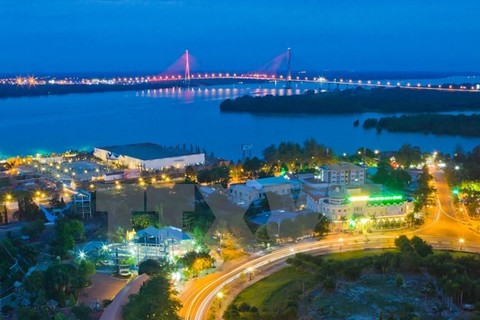Can Tho retail revenue hits 100 trillion
The city’s Department of Industry and Trade aims to improve the processing industry and focus on products with higher added value, such as agriculture, aquatic products and other Can Tho’s specialties, and attract more investors.
Can Tho set to increase Japanese investment
The southern city of Can Tho will take up a series of activities this year to strengthen cooperation with Japan and attract Japanese investors.
 |
| A view of Can Tho City at night. - Photo VNA |
Speaking at a conference of the city’s working group on Japan-related issues (Japan Desk) on Tuesday, Nguyen Khanh Tung, director of the city’s Centre for Investment, Trade Promotion and Exhibition, said one of the activities was the construction of an ICT Innovation Centre developed by the Brainworks Company.
Other activities will include a trade and investment promotion conference in Japan’s Hyogo prefecture, a meeting with Japanese investors in Ha Noi and a dialogue with Japanese firms.
In April, Can Tho will launch a model farm project, the first of its kind in the city.
The project is jointly developed by the Can Tho College for Economy and Technology and Japan’s VAIO Company. The aim is to impart high-quality training to agriculture experts in Can Tho and build facilities to apply agricultural technology similar to Japanese agri-businesses.
A Viet Nam-Japan Industrial Park will also be constructed, Tung said.
Truong Quang Hoai Nam, vice chairman of the People’s Committee of Can Tho, said many Japanese investors were interested in Viet Nam, but only a few Japanese firms were doing business in the city.
Therefore, he said, Can Tho needed to make a breakthrough in attracting Japanese investments.
According to the Can Tho Centre for Investment, Trade Promotion and Exhibition, by the end of 2017, the city accommodated 77 projects with foreign investment worth US$656 million. Its export and service revenue in the year hit $1.77 billion, exceeding the city’s target by 5.9 per cent and representing a year-on-year rise of 13.9 per cent.

